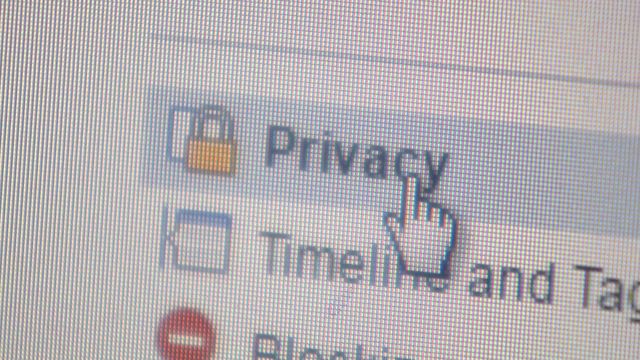Think before you click: How Facebook clickbait puts users at risk
Your Facebook feed. It's full of updates, pictures, suggested articles and quizzes - the content often called clickbait.
Posted — UpdatedClickbait is anything created to lure a reader to a website. What type of weather is your anger? Walking Dead trivia. Which cocktail are you?
Most people click, rarely thinking about the fallout, but what others do not realize is even what your friends do can create problems for you.
Kathy Sorber thought her privacy settings were pretty secure, but after having some fun with a few quizzes, she heard from her friends.
"They got a request for a second friend request for Facebook with my picture and my information, so it was an exact duplicate," she said. "I was like, 'What's going on?' That's just crazy.’”
Another Facebook user had a different issue. After taking a quiz, it appeared her friends commented on the results. But the friends say they did not.
Richard Biever, Duke University's chief information security officer, said there is usually a purpose behind the quizzes. He said he does not trust how the information gathered is being used.
“When you do the quizzes you have to provide permission to the quiz author,” he said. “When you get a look at the fine print, it's providing access, not just to data about you, but also potentially about friends of friends."
In one scam making the rounds, cyber experts say thieves use clickbait to hijack a person's account and send new friend requests for a fake account - similar to what happened to Sorber. They pose as your friend, then usually end up asking for money or lure you to another website where a person would share personal information. Scammers also use quizzes to trick a person into downloading malware.
At a minimum, Biever said the quizzes usually allow third-party links full access to your account. You grant permission in the often-unread privacy policies.
Access often extends to friends, so even if you are not playing along with the games and quizzes, if someone you are connected to is, your information is also up for grabs, Biever said.
"It would be as if you just make the quiz your friend," Biever said. "So, whatever settings you have as friend of a friend, the applications owners and the authors have access to that."
But the settings can be changed. Experts say the most important change involves "apps others use." Those are the ones that allow third-party sites to access personal information. Here are some changes you can make:
Once in your Facebook account, open settings, then account settings. Click on “Apps” then “Apps others use.” Disable them.
On the main settings menu, click “Ads.” They’re what’s tracking you. Switch them to “No” and “No one.”
Once in your Facebook account, open “settings,” then click “Apps.” Go into “Apps others use” and unclick the boxes for information you want to keep private.
On the main settings menu, click “Ads.” They’re what’s tracking you. Switch those to “No” and “No one.”
Sorber said she now clears out her apps and ads every few weeks.
"It is amazing how much they can find out, just from Facebook," Sorber said. "I try to protect myself as much as I can. Do I lose sleep over it? No. Do I try and be cognizant of what is there? Yes. I think that is all you can do."
• Credits
Copyright 2024 by Capitol Broadcasting Company. All rights reserved. This material may not be published, broadcast, rewritten or redistributed.





